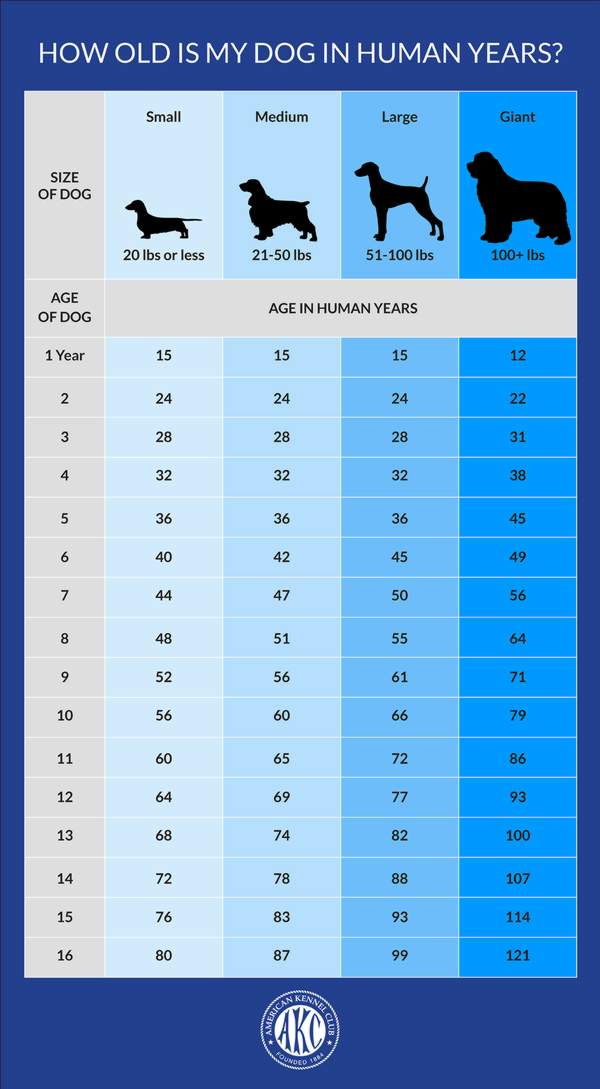Small dogs have an average lifespan of around 12-16 years. This can vary depending on factors such as breed, genetics, and overall health.
Small dog breeds tend to live longer than larger breeds, possibly due to their smaller size and lower risk of certain health issues. Factors such as good nutrition, regular exercise, and proper veterinary care can also contribute to a small dog’s longevity.
It is essential to provide proper care and attention to ensure small dogs live a long and healthy life.
:strip_icc()/GettyImages-1208322430-0b61ee0f9bdb4711a42cef382850fbee.jpg)
Credit: www.thesprucepets.com
Factors Affecting Lifespan Of Small Dogs
The lifespan of small dogs is influenced by various factors, including genetics, size, and overall health. On average, small dogs can live anywhere between 12 to 16 years, but some breeds, like the Chihuahua and Poodle, may live even longer.
Providing proper care, nutrition, and regular veterinary check-ups can help maximize their lifespan.
Factors Affecting Lifespan of Small Dogs Genetics One of the primary factors affecting the lifespan of small dogs is genetics. Just like humans, dogs inherit certain genes from their parents that can impact their health and longevity. Some breeds are prone to specific genetic conditions that may shorten their lifespan, while others may have genes that make them more resilient and less prone to certain diseases. It’s important to research the breed of your small dog to understand any potential genetic health issues they may face. Size and Breed Another significant factor that can affect the lifespan of small dogs is their size and breed. Generally, smaller breeds tend to live longer than larger breeds. This is due to several factors, including the fact that small dogs generally have fewer bone and joint issues, as well as lower risks of heart disease and cancer. For example, a breed like the Chihuahua has an average lifespan of 12 to 20 years, while larger breeds like Great Danes may only live for 6 to 8 years. It’s important to consider the size and breed of your small dog when estimating their lifespan. Healthcare and Nutrition Providing proper healthcare and nutrition for your small dog can greatly impact their lifespan. Regular veterinary check-ups, vaccinations, and preventive care can help detect and treat any potential health issues early on. Additionally, feeding your small dog a balanced diet that meets their specific nutritional needs is crucial for their overall health and longevity. Proper nutrition can help prevent obesity, which can lead to a variety of health problems in dogs. Exercise and Lifestyle The amount of exercise and the overall lifestyle of your small dog can also affect their lifespan. Small dogs that are regularly exercised tend to be healthier, both physically and mentally. Regular exercise helps them maintain a healthy weight, prevents boredom, and reduces their risk of developing behavioral problems. Additionally, providing a safe and enriching environment for your small dog can also contribute to a longer and happier life. In conclusion, several factors can affect the lifespan of small dogs, including genetics, size and breed, healthcare and nutrition, as well as exercise and lifestyle. By understanding and addressing these factors, you can help ensure that your small dog lives a long, healthy, and fulfilling life.Average Lifespan Of Different Small Dog Breeds
When it comes to the average lifespan of small dogs, many factors come into play. Genetics, diet, exercise, and overall health can all contribute to how long a small dog lives. Understanding the average lifespans of different small dog breeds can help you make informed decisions about the care and well-being of your furry companion. Let’s dive into the average lifespans of some popular small dog breeds.
Chihuahua
The Chihuahua is a small breed known for its big personality. With proper care, Chihuahuas can live an average of 12 to 20 years. This long lifespan can be attributed to their small size, which puts less strain on their organs and joints, as well as their overall good health.
Poodle
The Poodle, available in three different sizes (Toy, Miniature, and Standard), is a versatile and intelligent breed. Poodles have an average lifespan of 10 to 18 years. Their longevity can be attributed to their low incidence of genetic health issues and their overall good health.
Shih Tzu
The Shih Tzu is a small breed known for its luxurious coat and affectionate nature. Shih Tzus have an average lifespan of 10 to 18 years. While some genetic health issues can affect their lifespan, proper care and regular visits to the vet can help ensure a long and healthy life for your Shih Tzu.
Yorkshire Terrier
The Yorkshire Terrier, also known as Yorkie, is a small breed known for its adventurous spirit and loyalty. Yorkies have an average lifespan of 12 to 15 years. With proper care, a balanced diet, and regular exercise, Yorkies can live long and healthy lives.
In conclusion, the average lifespan of small dogs can vary depending on the breed. However, by providing proper care, nutrition, and regular veterinary check-ups, you can maximize the lifespan of your small dog and enjoy many happy years together.
Comparison Of Small And Large Dog Lifespan
When it comes to the lifespan of our furry friends, there is a noticeable difference between small and large dog breeds. Small dogs have a reputation for living longer than their larger counterparts. In this section, we will explore and discuss the factors that contribute to this disparity in lifespan.
Why Small Dogs Live Longer
Small dog breeds, such as Chihuahuas and Poodles, have an average lifespan of around 12 years, while larger breeds like Great Danes and Saint Bernards have a significantly shorter lifespan of around 8 years. There are several reasons why small dogs tend to outlive their larger counterparts:
- Lower Metabolic Rate: Small dogs have a slower metabolic rate compared to large dogs. This means that their bodies age at a slower pace, leading to a longer lifespan.
- Less Stress on Their Bodies: Larger dogs carry more weight and put more stress on their joints and organs. This can result in a higher risk of health issues and a shorter lifespan. In contrast, small dogs have less weight to carry and are generally more agile and less prone to these issues.
- Genetics: Genetic factors also play a role in the lifespan of small dogs. Certain small breeds have been selectively bred for longevity, which has contributed to their extended lifespan.
- Reduced Risk of Certain Health Problems: Small dogs are less likely to develop certain health problems that are more common in larger breeds. For example, large breeds are more prone to hip dysplasia and gastric torsion, while smaller dogs are less susceptible to these issues.
Factors Affecting Large Dog Lifespan
While small dogs live longer on average, there are factors that can influence the lifespan of large dog breeds:
- Size and Weight: Large dogs carry more weight and have a larger body mass, which can put strain on their joints and organs. This can lead to a higher risk of health issues and a shorter lifespan.
- Genetic Predisposition: Some large dog breeds are more prone to certain genetic health conditions that can affect their lifespan. For example, breeds like Bernese Mountain Dogs have a higher risk of cancer and other hereditary diseases.
- Medical Challenges: Large dogs may face challenges when it comes to medical procedures and treatments. Their size can make it more difficult to administer medication and provide necessary healthcare interventions.
In conclusion, the size of a dog can have a significant impact on its lifespan. Small dogs generally live longer due to factors such as lower metabolic rate, reduced stress on their bodies, genetic factors, and a reduced risk of certain health problems. On the other hand, large dogs may have a shorter lifespan due to their size and weight, genetic predisposition to certain health conditions, and medical challenges.
Tips For Increasing Small Dog Lifespan
Increase the lifespan of your small dog with these helpful tips. Provide a balanced diet, regular exercise, proper dental care, regular vet check-ups, mental stimulation, and a safe environment to maximize your furry friend’s longevity.
Regular Veterinary Check-ups
Regular veterinary check-ups are crucial for increasing the lifespan of small dogs. By taking your small dog to the veterinarian for routine exams, any potential health issues can be caught early on and treated promptly. These check-ups also allow your veterinarian to monitor your dog’s overall health and provide the necessary vaccinations to protect against common diseases. The veterinarian will also be able to give you personalized advice on how to maintain your small dog’s health and well-being.Proper Nutrition
Proper nutrition is essential for small dogs to live a long and healthy life. Providing a well-balanced diet that is appropriate for their size, age, and breed is crucial. Consult with your veterinarian to determine the best type of dog food for your small dog and ensure they are receiving the proper nutrients and vitamins. Avoid overfeeding and stick to the recommended portion sizes to prevent obesity and related health issues. Additionally, avoid giving your small dog table scraps or foods that can be harmful, such as chocolate, onions, or grapes.Exercise And Mental Stimulation
Physical exercise and mental stimulation are vital for the overall well-being of small dogs. Regular exercise helps to maintain a healthy weight, strengthen muscles, and improve cardiovascular health. Take your small dog for daily walks, play fetch, or engage in other activities that suit their size and energy level. Additionally, mental stimulation is important for small dogs to prevent boredom and destructive behavior. Provide interactive toys, puzzle games, and training sessions to keep their minds active and engaged.Maintaining A Healthy Weight
Maintaining a healthy weight is crucial for increasing the lifespan of small dogs. Obesity can lead to a myriad of health problems, including heart disease, diabetes, and joint issues. Ensure that you are feeding your small dog the appropriate amount of food and avoid excessive treats. Monitor their weight regularly and consult with your veterinarian if you notice any signs of weight gain or loss. Incorporate regular exercise into their routine to help them burn calories and maintain a healthy body condition.Dental Care
Dental care is often overlooked but plays a vital role in the overall health of small dogs. Poor oral hygiene can lead to dental disease, which can have serious consequences on their overall health. Regularly brush your small dog’s teeth with a dog-specific toothbrush and toothpaste. Offer dental chews or toys that promote dental health. Additionally, schedule regular dental cleanings with your veterinarian to ensure any plaque or tartar buildup is addressed to maintain healthy gums and teeth. By following these tips for increasing small dog lifespan, you can ensure that your beloved companion lives a long, healthy, and happy life. Regular veterinary check-ups, proper nutrition, exercise, maintaining a healthy weight, and dental care are essential components of a well-rounded care routine for small dogs. Prioritize their health and well-being to enjoy many years of companionship with your small four-legged friend.Common Health Issues In Small Dogs
Small dogs generally have a longer lifespan compared to larger breeds, with an average of 12-16 years. However, the specific lifespan can vary depending on factors such as genetics, diet, exercise, and overall health. It’s important to provide regular veterinary care to small dogs to identify and address any potential common health issues that may arise.
Dental Disease
One common health issue that small dogs often face is dental disease. Due to their small size, small breed dogs are more prone to dental problems such as tartar buildup, gum disease, and tooth decay. If left untreated, these dental issues can cause discomfort, pain, and even lead to more serious health problems.
Regular dental care is essential for small dogs to maintain good oral health. This includes brushing their teeth regularly with dog-specific toothpaste, providing them with dental chews or toys that help clean their teeth, and scheduling regular dental cleanings with a veterinarian.
Luxating Patella
Luxating patella, also known as a floating kneecap, is another common health issue that small dogs may experience. This condition occurs when the kneecap pops in and out of its normal position, causing pain and discomfort for the dog.
Some small breed dogs are genetically predisposed to luxating patella, while others may develop this condition as a result of injury or trauma. Symptoms of luxating patella may include limping, difficulty in walking, or skipping while running.
Treatment for luxating patella varies depending on the severity of the condition. In mild cases, conservative management, such as weight management and physical therapy, may be recommended. In more severe cases, surgical intervention may be necessary to correct the misalignment of the kneecap.
Heart Problems
Heart problems are also common among small breed dogs. Some small dogs, like Chihuahuas and Dachshunds, are more prone to certain heart conditions such as mitral valve disease and congestive heart failure.
It is important for small dog owners to be aware of the signs and symptoms of heart problems, which may include coughing, difficulty in breathing, fatigue, and sudden weight loss. Regular veterinary check-ups and diagnostic tests, such as echocardiograms, can help detect and manage heart conditions in small dogs.
Obesity
Obesity is a prevalent health issue in small dogs, especially when they are overfed or lack exercise. Being overweight can put additional stress on their joints, organs, and overall health, leading to various health problems.
Preventing obesity in small dogs involves feeding them a balanced diet with appropriate portion sizes and offering them regular exercise. It is essential to monitor their weight closely and consult with a veterinarian to ensure they maintain a healthy body condition.
Respiratory Issues
Small breed dogs, like Shih Tzus and French Bulldogs, are prone to respiratory issues due to their brachycephalic (short-nosed) features. These respiratory issues can include difficulty in breathing, snoring, and susceptibility to heat exhaustion.
Owners of small dogs should be cautious when exercising or exposing them to high temperatures, as their respiratory system may struggle to cool down efficiently. It is advisable to keep them in well-ventilated areas, provide plenty of water, and avoid strenuous activities in extreme heat.

Credit: dogo.app

Credit: www.akc.org
Frequently Asked Questions For How Long Do Small Dogs Live?
What Is The Average Life Expectancy Of A Small Dog?
The average life expectancy of a small dog is around 12 to 15 years. Factors like genetics, size, and overall health can affect their lifespan. Taking proper care, regular vet check-ups, and a balanced diet can help increase their longevity.
Can A Dog Live 20 Years?
Yes, a dog can live up to 20 years. Small dog breeds usually have longer lifespans compared to large ones.
How Do You Tell How Long Your Dog Will Live?
The lifespan of a dog can vary, but there are factors that can give you an estimate. Small dogs tend to live longer than large breeds, with an average lifespan of around 12-15 years. However, individual factors such as genetics, overall health, and care can also impact a dog’s lifespan.
What Is The Life Expectancy Of A Small Mixed Breed Dog?
The life expectancy of a small mixed breed dog is typically around 12-15 years.
Conclusion
The average life expectancy of small dogs varies depending on several factors, but generally ranges from 10 to 15 years. While genetics play a role, proper diet, exercise, and regular veterinary care are also crucial for a long and healthy life.
It’s fascinating to explore why small dog breeds often live longer than their larger counterparts, and understanding these differences can help us provide the best care for our furry friends. Remember, every dog is unique, so cherish the time you have with your small companion and make their golden years as happy and fulfilling as possible.
